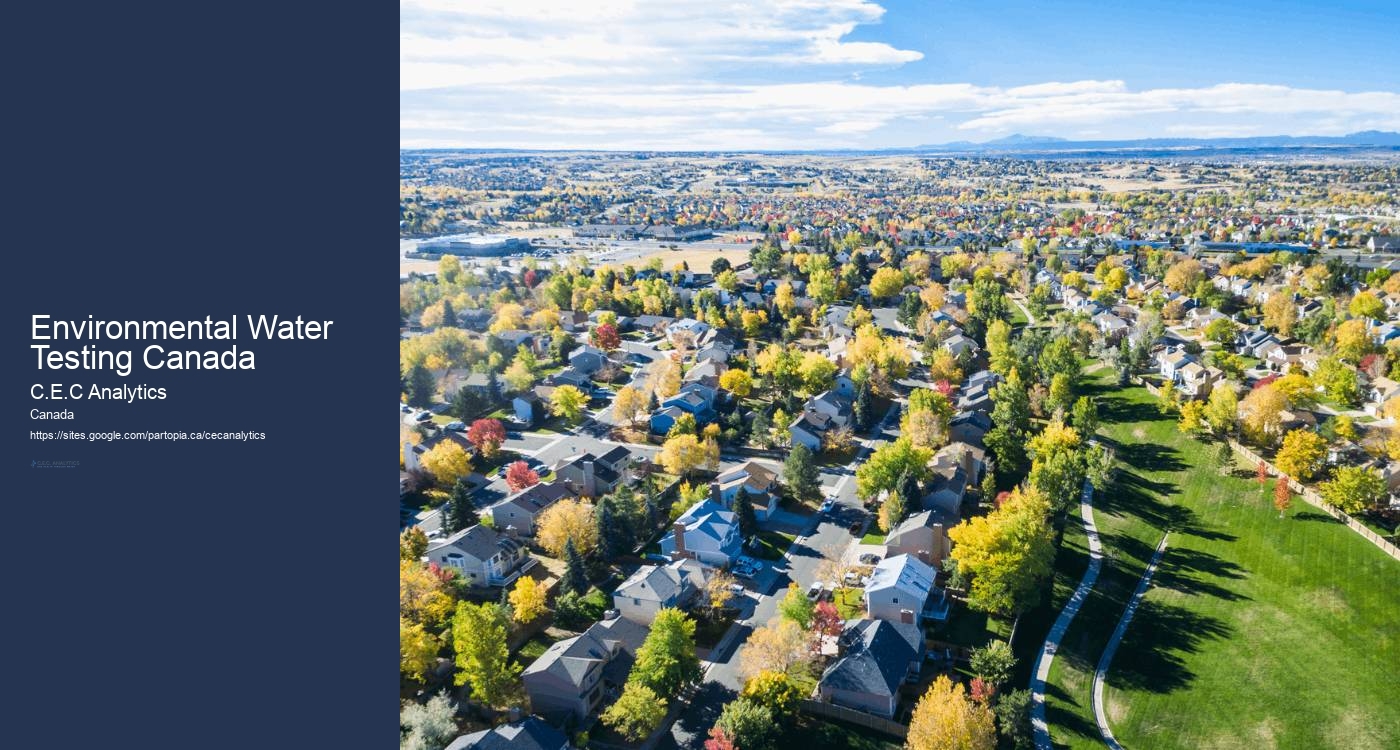

E. E.
C. Water policy and regulation compliance C. You'll benefit from its ability to identify toxins that conventional methods might overlook, safeguarding your water from a broader spectrum of chemical threats. E. By integrating advanced surveillance technology into water sampling, they're not only enhancing the precision of data collection but are also setting new standards in environmental protection.
The team at C. C. First off, you're cutting down on time significantly. This might mean upgrading your filtration system or introducing new purification technologies that are designed to eliminate or reduce the presence of these contaminants.
E. Water sampling kits for home testing This cutting-edge approach not only saves time and resources but also enhances our ability to protect and preserve our planet's precious water resources. Nutrient pollution assessment in water Read more about Environmental Water Testing Canada here Knowledge is power, and understanding the challenges and solutions in water monitoring equips you to make a difference. Then there's the technical side.
GIS technology, on the other hand, maps out water samples geographically, highlighting areas of concern. Based on the analysis, you're given tailored recommendations to address the specific issues found in your water. E. Analytics' rapid water analysis can detect threats in real-time, allowing for immediate action to prevent outbreaks and safeguard communities.
First, consider the story of a mid-sized city in the Midwest. This proactive approach saves time, money, and, most importantly, lives. You'll be glad to know that Greenfield now boasts some of the cleanest water in the region. You'll see a shift towards real-time monitoring systems that'll allow you to instantly detect contaminants.


This means you're not just reacting to outbreaks anymore; you're staying one step ahead. Moreover, their data-driven approach aids public health officials in making informed decisions about water treatment and pollution control strategies. A manufacturing plant used C.
C. Analytics boosts community well-being through water quality improvements, let's now look at specific instances where their strategies have made a tangible difference.


In the coming years, we're diving deeper into research and development to introduce cutting-edge solutions that'll tackle even the most challenging water quality issues. When you consider the importance of clean water in our daily lives, it's clear why the company's mission is so crucial. While predictive analytics equips you to anticipate water quality issues, real-time monitoring advancements empower you to address these challenges as they unfold. Industrial cooling water quality monitoring You're contributing to a cleaner, greener future by choosing us.
C. C. This proactive approach ensures you're not just informed but equipped to improve your water quality effectively.
Analytics reveals how it's revolutionizing sustainable water monitoring with precision and innovation. C. Advances in technology, particularly in the field of sustainability and environmental management, offer you potent tools to address these challenges.
It's not just about reacting to current conditions; predictive analytics can forecast future demand, allowing for proactive adjustments that keep the system balanced and prevent shortages. Simple actions like fixing leaks, using water-efficient appliances, and adopting water-saving habits contribute significantly to the cause. What does this mean for you?
C. Analytics is set to collaborate with local governments and health agencies. E. Another advantage you'll appreciate is the ability to detect a wider range of contaminants. With C.
This isn't just about collecting data; it's about interpreting it in ways that lead to actionable insights. E. You're not just collecting data; you're unlocking the potential to foresee trends, identify risks, and make informed choices that ensure sustainable water use and conservation. Stick around, and you'll uncover how this blend of science and technology could be a game-changer in the way we understand and respond to the world around us.

Sampling may refer to:
Specific types of sampling include:
| Part of a series on |
| Pollution |
|---|

|
Wastewater (or waste water) is water generated after the use of freshwater, raw water, drinking water or saline water in a variety of deliberate applications or processes.[1]: 1 Another definition of wastewater is "Used water from any combination of domestic, industrial, commercial or agricultural activities, surface runoff / storm water, and any sewer inflow or sewer infiltration".[2]: 175 In everyday usage, wastewater is commonly a synonym for sewage (also called domestic wastewater or municipal wastewater), which is wastewater that is produced by a community of people.
As a generic term, wastewater may also describe water containing contaminants accumulated in other settings, such as:
C.E.C. Analytics ensures the accuracy and reliability of their data by using advanced technology and strict quality control protocols. You'll get precise results, thanks to their rigorous testing and continuous system improvements.
You can get involved in the 'One Health Through Water' initiative by participating in local clean-up events, educating others about water conservation, and supporting policies that protect water resources in your community.
To ensure privacy and ethical use of data, you'd adopt strict data management protocols, anonymize participant information, and comply with legal standards. Regular audits and transparency about data use help maintain trust and integrity.